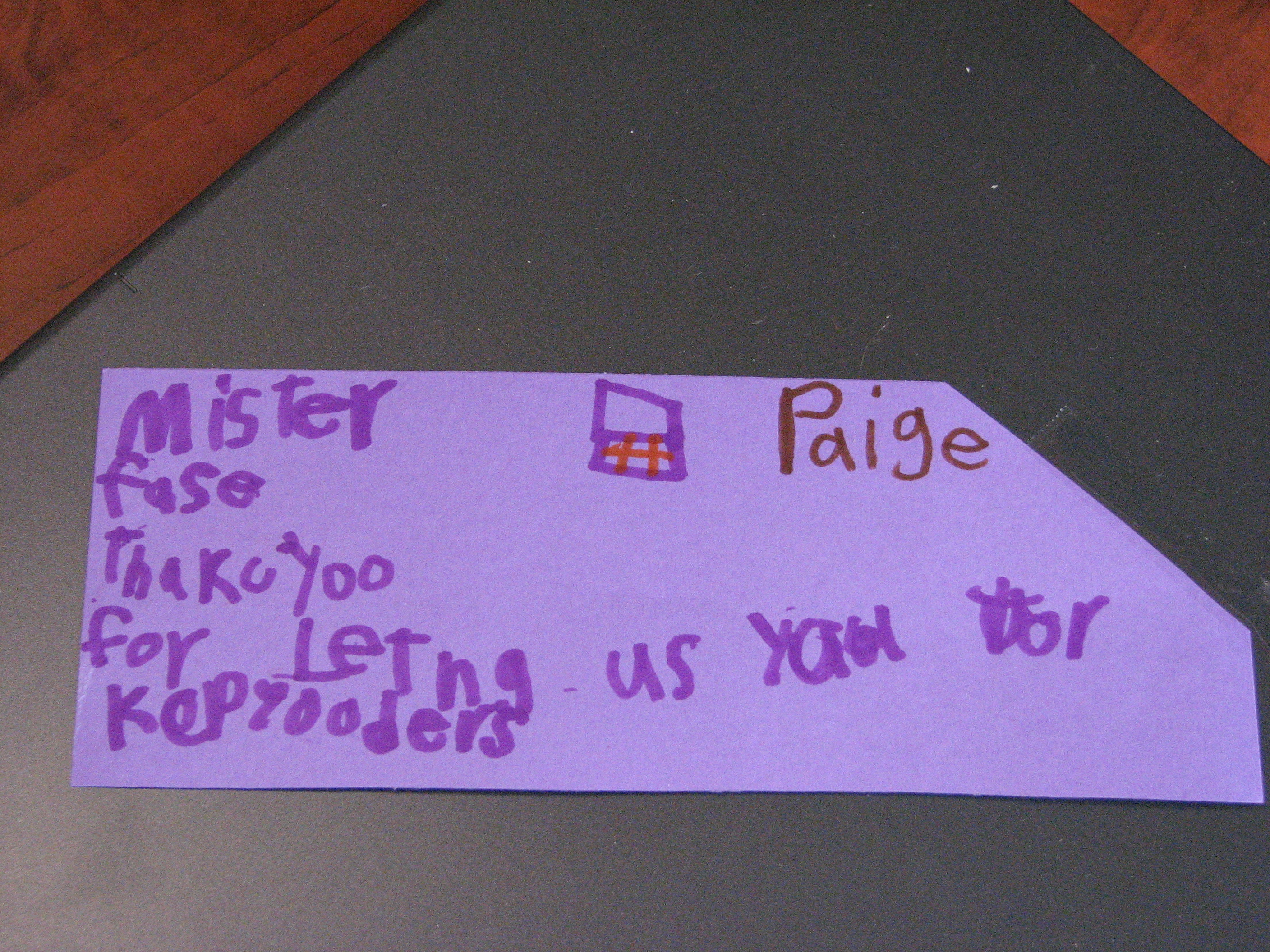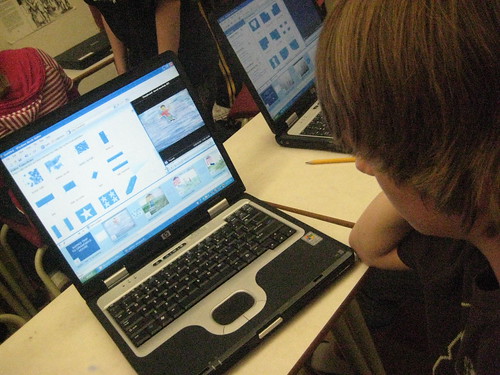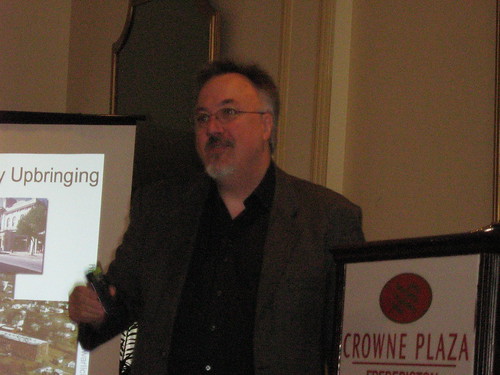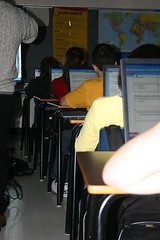I dropped by my boss’ office last week for a chat. It was the end of the year and, while we keep in touch pretty much daily on twitter, it’s always good to have that f2f interaction. We always seem to share ideas and frustrations, sharing our visions of learning.
As I sat down, I noticed a few laptops sitting in a carrying crate. Our district has put together a few “loaner kits” of laptop pods for K-5 schools. We also have loaners of GPS units for geocaching and podcast equipment. While not the ideal of having ubiquotous access for all learners, it is a great start. The units are in constant demand – a good problem to have – and the district continues to work to have more mobile kits available.
My boss was telling me about a recent visit he made to a Kindergarten class. This young boy was eager to talk. “Hey mister! I wanna show you something…come over here!”. My boss, of course, wanted to see what the youngster had created. But it wasn’t a product that he wanted to show. It was a secret. The secret of the red line.
“See what happens when I don’t spell a word right”, he said. “This little red line appears underneath it. And look, if I right click, I get this word list and I have to choose the correct spelling for the word I want”. My boss, of course, played along, pretending to have seen spellchecker for the very first time.
I know that many – including teachers I talk to – don’t like spellcheck. They think it excuses kids from learning to spell. I would argue that it does just the opposite. If the red line didn’t appear under the word, he would never have known it was misspelled, and would never have had the opportunity to correct his spelling.
 This child was becoming a 21st century learner. Utilizing the available tools, he was able to identify and solve a problem. This type of assistive technology will be increasingly available in their work, play and learning spaces.
This child was becoming a 21st century learner. Utilizing the available tools, he was able to identify and solve a problem. This type of assistive technology will be increasingly available in their work, play and learning spaces.
Of course, no loan would be complete without the thank-you note. Coming from a kindergarten class, you would expect nothing less than perfection, misspellings and all!
Paige writes…“Mister Facey, Thank you for lending us your computers.”
What more could you ask for. Perfect.
tags: technology, education, whipple, learning

 The last day I have spent with
The last day I have spent with  After a successful first year in 06-07,
After a successful first year in 06-07,  In Flanders fields the poppies grow
In Flanders fields the poppies grow The buzz began in in New Brunswick in March when he shared his ideas at the first Literacy and Learning in the 21st Century Conference, starting conversations throughout the province.
The buzz began in in New Brunswick in March when he shared his ideas at the first Literacy and Learning in the 21st Century Conference, starting conversations throughout the province. One of the real gems among the many projects out there is
One of the real gems among the many projects out there is  Matt has literally thrown the textbook aside, and has placed all his course materials, from class notes to review and self-correct answer sheets and links to web-based resources, on a
Matt has literally thrown the textbook aside, and has placed all his course materials, from class notes to review and self-correct answer sheets and links to web-based resources, on a  I have recently become involved in an amazing 1001 Flat World Tales project that is developing from
I have recently become involved in an amazing 1001 Flat World Tales project that is developing from  I make contact with potential class partners in many ways (conferences, blog responses, etc.) but perhaps the simplest resource for teachers looking to develop learning partnerships for their students is
I make contact with potential class partners in many ways (conferences, blog responses, etc.) but perhaps the simplest resource for teachers looking to develop learning partnerships for their students is